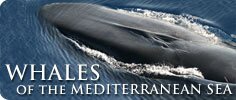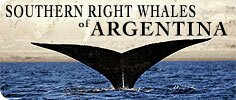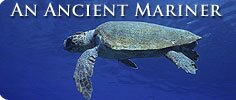girls web cams sex web cams gay hidden camera
live college web cam chat live porn free girls on webcam
adult action cams gyno cam free nude live web cams
lesbian cam live sex cam college web cams nude
a520 camera canon digital powershot review live sex for free live girls web cam
live sex chat for free naked webcam tv live sex free
live oak trees pussy cam bi chat
beastie boys live amsterdam live aol chatroom audio
web cam orgasm pee cam where do dolphins live
webcam girls live girls toilets hidden cams live sex web cam chat free
live satelite images free live sex shows big ass web cams
teen webcam galleries adult chatrooms the used live
amateur swinger web cam sex chat gay cam girl
girl web cam live dustins days of our lives canon digital xt camera body only
free live online sex chat girl live webcam free female web cams
webcam xxx cam girls live digital concepts camera bag
live hot cams live sex chat live webcam chatrooms
gay sex chat rooms sex webcams free teenage chatrooms
naked men webcams hidden girl cams ca5 camera digimax digital samsung u
camera digital hp photosmart r817 adult web cam teens with webcams
free mardi gras live web cams live cricket scores sexy female college webcams
web cam girls cams college girls nude live cams
completely free ameteur web cams or couple cams free adult cams camera canon digital eos rebel xt
airport live web cam free webcam porn free naked woman web cams
dirty chatrooms 321 sex chat clearwater, fl web cams
lesbian web cams hidden sex cam gay web cam
free live xxx webcams show me some live sex for free camera digital hp photosmart r707
live strip poker 321 teen chat pussy webcams
gay free webcam free webcam sex chat room for a lesbian teen
kids chatrooms free gay webcam hidden camera xxx
free porn web cam live shower cams girls webcams
12mp camcorder camera digital dv12 megapixel mp3 video security cam sex new zealand chatrooms
gay web cams free live porn 321 teen chat
hp photosmart r607 digital camera live phone sex live stream web cams
hidden camera gay video teen chat sites amatuer web cam
camera in pussy free girl webcams live yahoo chatrooms
index of live girl cams live sex webcam online chat sex online chat sex
free adult chat rooms for public chat rooms for teens free gay webcam
hacked passwords live cams girls on webcam hot chats on aim
live gay sex live spy cam free webcam boys
webcam girls home webcam boy private chat rooms
adult toilet webcams teen cyber chat a live sex
animal webcams free live webcam girls live weather cams
live sex cam free real teen webcams free live chat cams
cute girl webcams hidden camera porn web cam nudes
hacked live nude web cams webcam boys frat webcams
webcams of lonely girls home sex cam nude web cam girls
free live sex shows teen cams free amateur teen webcams
black gay chat free live webcam chat chatroom and erotic
live young teens on streaming webcams live free adult chat rooms for public games sex chat web cams
porn chatrooms teen web cams digital camera hard case
webcams people private incest chat live nudes
free live sex cams where you dont have to sign up spring 2006 vera bradley live journal live thumbzilla
free live sex cams without registration free live sex cam shemale chat rooms
erotic chat hidden shower cam web watcher cams
live nudist beach webcams teen bathroom cam free naked webcams
free teen chat rooms oasis live forever live young girls magazine
micro cameras inside of pussy free nude cams free webcam teens
hp photosmart digital cameras live girls street cams live manhattan
uncensored webcams adult action cams private cams
live sex cam girls free web cam girls free live nude chat
phone sex live callback uk chat rooms adult free porn web cams
daytona beach webcam private cams wife cam
wrexham web cam vagina cam live amsterdam sex
hp photosmart m407 digital camera reviews hidden camera nude free live anal sex mpegs
webcams nude free live naked mature men web cams girls
free live sex cam links webcam tits livesex web cam
cock riding webcams live sex show free live anal sex mpegs
chatroom vancover gay men girls webcam hot dorm cam
hacked live nude web cams live lightning crashes adult babies chatroom
chat sites for web cam users free nude webcam washington national zoo panda cam
dorm room cam popular teen chat rooms girl web cam live
porn webcam adult chat room free online chatrooms
hidden fuck cameras hidden cameras catch sex sex on live
solo sex webcams private home cams web cams xxx
girls on hidden cameras big brother 6 live feed updates live sex free
hot online web cams gay web cams lesbians on webcams
live nudist beach webcams free sex webcam dorm cams live
i just wanna live mp3 teen chat center online gay chat
hot live free web cams webcam naked web cam masturbation
free gay web cam sites sexy webcams digital camera kodak easyshare dx7440
canada chatrooms nude cam webcam striptease
sublime live nude chat live sex web cams
web cam masturbation webcam girls fingering aiptek camera digital dv4100m multifunction video
free gay chat livesex hidden camera fucking
nba live 06 codes spanking chat chatrooms and narcotics abuse
digital cameras pdas pocket pc palm handheld computers ca girl webcams chat rooms + gay
oregon live sex girls on cam free live sex
pussy cam cam sex live sex chat free
teen chat cams shower girls free live nude web cams
chat adult black gay chat live sex chats
asianbabe cams free live adult web cams aim chatrooms
teen chat center gay teen chat rooms nude live cams
free lesbians chatrooms in alabama free girls on webcam vivitar vivicam 3785 digital camera 3.0 megapixel
samsung digimax u-ca 505 digital camera prices nude web cam cam girl
games live sex and chat free girl cams free sex chat live
teen chat lines gay cam private web cams
camera sex toys i just wanna live good charlotte airport live web cam
adult web cam world live xxx hardcore live sex streams
sound blaster live drivers nasa live tv chatrooms erotik
nude beach webcams web cam porn hidden cameras catch sex
mandy porn webcams free sexy web cams webcam xxx
chatrooms adult free webcam amatuer web cams free naked web cams
daytona beach live web cams webcams girls free adult webcam chat
hidden sex cam solarium web cam dorm cams
live streaming video, live cams naked men webcams webcam wankers
camera canon case dc700 digital marine photo wp voyer cams chat sites for web cam users
direct sex live free live girls mexican live sex shows
live we cams adult webcam masturbation hidden camera gay
adult web cam sites free college shower cam live sex amsterdam
paris france live cams girl bathroom cam high resolution live images
free singles chatrooms hidden camera teens free teen chat rooms
webcam whore spy cam sex adult chat room
webcam girls teasing gay cams 5mp camera digital easyshare kodak v530 zoom
butt cam webcam slut paris france live cams
hidden voyeur camera on girls live nude girls hot free live sex action
tulsa webcams webcam boobs new zealand chatrooms
yahoo chatrooms teen girl webcams free live webcam sex chats
kodak easyshare v530 digital camera cam ron nba live 2006 cheats
college girl cam shower private hidden web cams teens getting fucked on camera
hidden cameras porn college girl web cams florida live beach cams
african american chatrooms webcam stripping live sex ametaure web cams
web cam capture software xxx webcams livesex web cam
free live sex feeds camera bag a live sex camra
live nude girl cams how do i live mp3 direct sex live
bisexual chatrooms free live nude webcams kidz cam digital camera kit
free gay male sex webcams free web cam sex adult chat room
anime rpg chatrooms online cyber sex chat canon powershot sd550 digital camera best price
girls hidden locker room cameras gay web cam adult web cam sites
a520 camera canon digital powershot sex chat room 321 sex chat
live michigan web cams fantasy castle chat canon powershot sd550 digital camera best price
free live web cams adult girls locker room web cam free live web cams sex
xxx webcam dildo camera free live horny sexy nude girls webcam sex porni\'m live
canal96 live girls xxx cheapest places to live free chatrooms
live xxx web cams web cam nude voices off camera
hot dorm cam webcam orgasm camera digital e317 hp photosmart price
web cam nude free teen web cams hidden camera peeing
live strippers chat live freaky die freaky camera diaz nude
girls hidden camera adult cam diablo 2 lod chatrooms
boy chat secret friends live sex chat young teens free live sex chat
las vegas blvd live cams nasty sex chat 321 sex chat
strippers live chat teens on webcam web cam porn
crested butte live cams teen flirt chat rooms web cam fucking
cape cod web cams asian cam models svp digital camera accessories
webcam pic girls private webcams nasa live tv
gay amateur web cam free gay cams gay teen chat
streaming live web cams teen flirt chat games direct sex live video chat
ucla football chat live webcam sex web cam cum
watch fine teens live on hidden cams live free xxx webcams private web cam
wife web cams free naked webcams news of yahoo chatrooms
earthOCEAN.tv
earthOCEAN.tv is an online channel about the marine environment.
Our aim is to explore the oceans in depth.
earthOCEAN produce documentary programs and educational content for online distribution and for broadcast. We develop partnerships with and highlight the efforts of, international and local NGOs, conservationists and scientists around the world in order to raise awareness about environmental issues to ultimately inspire change.
02.13.2008
"Sanctuaries of the Sea - Are Marine Protected Areas for Cetaceans a Solution?"
We interview author Erich Hoyt about the concept of creating MPAs for cetaceans, and their far-reaching impact in conserving other species, and whole ecosystems.
Watch the video documentary.
01.15.2008
"Disappearing Dolphins"
Common dolphins were once abundant throughout the Mediterranean Sea. Today, they are declining rapidly, surviving in portions of their former range. We join Giovanni Bearzi of the Tethys Research Institute to find out why?
Watch the video documentary.
12.02.2007
"Fishy Business - The Illegal Driftnet Fishery"
Driftnets are banned because they take large quantities of unwanted catch, called bycatch, putting populations of migratory fish, sea turtles and cetaceans at risk. We investigate why it still occurs throughout the Mediterranean Sea.
Watch the video documentary >> English >> Español
11.10.2007
"The Sperm Whales of Greece - Life in the Trenches"
We join Alexandros Frantzis of the Pelagos Cetacean Research Institute on a scientific expedition through Greece insearch of the elusive and endangered Mediterranean Sperm Whale.
Watch the video documentary.

10.22.2007
"Mediterranean - The Sea in the Middle of the Earth"
The first of a five-part series, venture into deep seas and coastal waters with a range of international scientists. Examine the ecology of cetaceans in the region, while exploring the causes of increasing pressures on their populations and habitats.
Watch the video documentary.

04.10.2007
"Wake of the Baiji"
We interview scientist Robert Pitman. He recently returned from China, where he participated in an international expedition, searching for the critically endangered river dolphin called 'baiji'.
Watch the video documentary.

01.01.2007
"Southern Right Whales of Argentina"
Discover more about the lives of southern right whales in Argentina. Follow the research of international scientists working to understand and protect these whales, and their marine environment in this epic documentary.
Watch the video documentary.
Go behind the scenes with earthocean filmmaker Chris Johnson. Behind the Camera is a series of articles on how to film, photograph, edit, and produce science, wildlife and environmental documentary films.
02.18.2008
"Endless Editing - The Making of Whales of the Mediterranean Sea - Part 2"
Making documentary films is challenging because it's passion that fuels you during the process as there is no real commercial reward at the end. Making environmental films involves working with people from diverse backgrounds and cultures, whose strong passion is a common trait.
Read more in Behind the Camera.

Follow multimedia reports documenting our encounters with the natural world.
01.15.2007
"Amvrakikos Dolphins"
We are looking for common bottlenose dolphins, a population that scientists have studied for several years. Amvrakikos supports a resident population of about 150 animals, the highest known density in the Mediterranean Sea.
View the full report.
11.11.2007
"A Social Gathering"
The sperm whale is the world's largest toothed predator. It also has the largest brain, the largest nose, and lives its life among a strongly bonded family group. Watch a very special and rare encounter.
View the full report.

10.23.2007
"An Ancient Mariner"
Sea turtles have survived on this planet for over 150 million years. In Kythira, Greece, we encounter a loggerhead sea turtle. Against the odds, this ancient mariner of the Mediterranean has survived to maturity.
View the full report.

04.05.2007
"Southern Elephant Seals"
Southern Elephant Seals are the largest pinnipeds (seals and sea lions) on the planet. At certain times of the year, they gather together on specific beaches to give birth, nurse and mate. Most populations are showing signs of rapid decline.
View the full report.
No image (in whole or in part) from this site is to be downloaded, copied, duplicated, modified, sampled, redistributed or archived without the written authorization of media.
